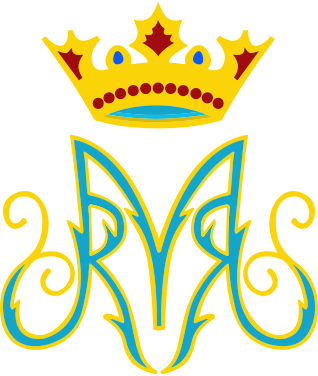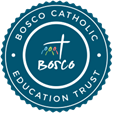History
History Intent
Our History curriculum is designed and carefully delivered to widen and deepen the children’s essential knowledge, skills and understanding of the past, present and future – its’ impact on Britain and that of the wider world, with a strong emphasis on change and continuity and diversity of society over time.
Through carefully selected topics, learners acknowledge significant chronological events using clear timelines, they make clear links between past and the present and can make predictions about the future, and what actions have and may impacted future events.
Lessons are built up to induce memory of what they have learnt previously and to be able to make links to what they are presently learning, a sense of awe and wonder and to inspire curiosity that leads to a thirst to know more. Creative and thought provoking questions in class discussions are used to promote children’s evaluative skills and encourage children to make their own judgements on past decisions and how these actions impact the future. They are encouraged to ask further questions, weigh evidence based on primary and secondary sources and make their own judgements weighing evidence as reliable or bias and to create their own arguments based on what they mediate as right or wrong or necessary.
Children are actively encouraged to use correct terminology to explain their ideas, describe causes and effect and make further predictions with our whole school approach of “Word Aware”. Children are able to access accurate and high-quality vocabulary on working walls, in lessons and through their own research.
British values are woven in to the History curriculum where children are invited to share and reflect upon their own place and role within society which helps to develop their self-esteem. Through building and developing relationships, learners are able to recognise the importance of mutual respect. Learner’s develop their awareness of empathy and compassion through discussing, questioning and reflecting on topics being learnt, they learn to form their own opinions, with an appreciation to other people’s views, and how interpretations will differ from person to person. Links with the local community enables learners’ to understand, challenge and reflect upon changes within society. At school, we emphasise the importance of learners’ understanding their role as a citizen in modern Britain; appreciating differences and similarities; showing tolerance of those with different faiths and beliefs; being inspired by role models and having ambition to develop their own integrity and self-belief in the world we live in. Across the school at Our Lady’s an awareness of learners’ responsibility as a global citizen is paramount in History lessons; how can learners’ contribute positively to the world around them. Learners’ are continuously encouraged to take risks, solve problems and become self-motivated.
National Curriculum
Our driver for History learning outcomes is the National Curriculum. In History we aim to ensure that all pupils:
- know people’s lives have shaped this nation and how Britain has influenced and been influenced by the wider world
- know and understand significant aspects of the history of the wider world: the nature of ancient civilisations; the expansion and dissolution of empires; characteristic features of past non-European societies; achievements and follies of mankind
- gain and deploy a historically grounded understanding of abstract terms such as ‘empire’, ‘civilisation’, ‘parliament’ and ‘peasantry’
- understand historical concepts such as continuity and change, cause and consequence, similarity, difference and significance, and use them to make connections, draw contrasts, analyse trends, frame historically valid questions and create their own structured accounts, including written narratives and analyses
- understand the methods of historical enquiry, including how evidence is used rigorously to make historical claims, and discern how and why contrasting arguments and interpretations of the past have been constructed
- gain historical perspective by placing their growing knowledge into different contexts: understanding the connections between local, regional, national and international history; between cultural, economic, military, political, religious and social history; and between short- and long-term timescales
We believe in quality teaching and learning, that assists pupils to gain a coherent knowledge and understanding of Britain and can compare to the wider world. The aim for our learners is to have a fully encompassing creative curriculum, which engages their imagination and encourages the next steps in their learning.
Cornerstones Education is our vehicle that drives our History learning intentions. Cornerstones facilitates topic experiences and maps out the National Curriculum across each Key Stage, ensuring learners work towards achieving the Programmes of Study outcomes by the end of each Key stage. Using the Cornerstones Topics, teachers are provided with guidance so they can play their part in providing a well thought through broad and balanced curriculum within their year group and how this fits in within the learners’ whole school experience, ensuring their learning is chronological and can make clear links to past and present significant events. One of the key aims of using this vehicle for our curriculum is to create excited and enthusiastic learners, who have been taught to explore ideas, take risks, solve problems, be inspired as well as inspire those around them, within meaningful contexts. Choosing topics carefully and planning to suit the needs to each cohort of learners: preparing learners who will are able to make positive contributions now and in the future; learners who feel confident to take risks and take their own learning forward; learners who explore ideas and are questions and self-motivated.
It is with upmost importance children learn to value and appreciate change through time and how it influences society’s views and decision making through sophisticated use of materials, resources and technologies available in each era. In today’s society, having such a broad access to knowledge and information with the use of the internet and media influences, how we need to use this information with understanding of differences, cultural influences and being able to use it sensitively and wisely.
History Learning Journey – Through the Primary Years
Our learners begin to acknowledge relationships, concept of time continuity and change from birth. At Our Lady Queen of Heaven, we teach History with this as a fore-focus. We begin with their life experiences and move their knowledge and skills on from Early years right through to Year 6.
Early Years Foundation Stage
In Early Years Foundation Stage children will learn to:
- Discuss lives of people around them and their roles in society.
- Identify differences and similarities between the past and present.
- Understand the past through settings, characters, events in fiction and non-fiction books, storytelling and role-play.
- Talk about their own past experiences and memories.
- Share special memories about special days with significant people in their families.
Key Stage 1:
Skills and Knowledge are taught through the topics of Childhood and School Days, Magnificent Monarchs and Movers and Shakers.
- Changes in living memory
- Events beyond living memory that a significant nationally or globally.
- Lives of significant people and compare aspects of life in different periods.
- Significant historical events, people, places in their own locality.
- How people’s lives have shaped this nation and how Britain has influenced other nations or have been influenced.
- Understand historical concepts such as continuity and change, cause and consequence, difference and significance.
- Use methods of historical enquiry, including how evidence is used to make historical claims and interpretations are made.
- Introduce abstract terms such as “civilisation, empire, parliament and peasantry”
Key Stage 2
Key Stage 2 develops these skills further, with using more abstract terminology, independent research, exploring reliable and unreliable sources and making own judgements through the topics of:
- Through the Ages – Changes in Britain from Stone to Iron Age
- Ancient civilisation- ancient Sumer, the Indus Valley and ancient Egypt.
- Emperors and Empires – Roman Empire and their impact
- Invasion – Britain’s settlement by Picts and Scots, Anglo-Saxons and Vikings.
- Achievements of earliest civilizations – Ancient Greece.
- Britain at War – first world war and second world war.
- Non-European Society in contrast to British History –Maafa – Benin (West Africa)

